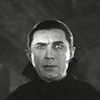You are not logged in. Please register or login.
- Topics: Active | Unanswered
Re: NY Times article - How Axl Rose Spent All That Time
http://www.nytimes.com/2008/11/23/arts/ … 20d%206cBQ
“ALL I’ve got is precious time,” W. Axl Rose sings in the title song of Guns N’ Roses’ new album, and he must be well aware of how that line sounds now. Mr. Rose, 46, the only remaining original member of Guns N’ Roses, needed 17 years, more than $13 million (as of 2005) and a battalion of musicians, producers and advisers to deliver “Chinese Democracy,” the first album of new Guns N’ Roses songs since 1991. It’s being released on Sunday, with CDs sold exclusively at Best Buy. (In another 21st-century fillip the album’s best song, “Shackler’s Revenge,” appeared first in a video game, Rock Band 2.)
“Chinese Democracy” (Geffen) is the Titanic of rock albums: the ship, not the movie, although like the film it’s a monumental studio production. It’s outsize, lavish, obsessive, technologically advanced and, all too clearly, the end of an era. It’s also a shipwreck, capsized by pretensions and top-heavy production. In its 14 songs there are glimpses of heartfelt ferocity and despair, along with bursts of remarkable musicianship. But they are overwhelmed by countless layers of studio diddling and a tone of curdled self-pity. The album concludes with five bombastic power ballads in a row.
“Chinese Democracy” sounds like a loud last gasp from the reign of the indulged pop star: the kind of musician whose blockbuster early success could once assure loyal audiences, bountiful royalties, escalating ambitions and dangerously open-ended deadlines. The leaner, leakier 21st-century recording business is far less likely to nurture such erratic perfectionists. (Mr. Rose did manage to outpace Kevin Shields of My Bloody Valentine, which re-emerged on tour this year but hasn’t yet released a successor to its 1991 masterpiece, “Loveless.”) The new rock paradigm, a throwback to the 1950s and early 1960s, is to record faster, more cheaply and more often, then head out on tour before the next YouTube sensation distracts potential fans.
“Chinese Democracy” is such an old-school event that at this point no album could easily live up to the pent-up anticipation and fascination. Over the last two decades Guns N’ Roses’ 1987 debut album, “Appetite for Destruction,” has sold 18 million copies in the United States alone. The original band, particularly the guitar team of Slash on lead and Izzy Stradlin on rhythm, collaborated to forge a scrappy combination of glam, punk and metal behind Mr. Rose’s proudly abrasive voice, which could leap from a baritone growl to a fierce screech. Singing about sex, drugs, booze and stardom, Mr. Rose was a rags-to-MTV success story for the 1980s: a self-described abused child from heartland America who got himself out of Indiana and reinvented himself as a full-fledged Hollywood rock star, charismatic and volatile, never pretending to be controllable.
Amid tours, band members’ addictions and liaisons with models, Guns N’ Roses went on to make an EP and the multimillion-selling albums “Use Your Illusion” I and II, which were released simultaneously in 1991. Those were followed by a desultory collection of punk-rock remakes, “The Spaghetti Incident?,” in 1993, before the band splintered and left Mr. Rose as the owner of the Guns N’ Roses brand. Clearly it would be a very different band, but there was little doubt that Mr. Rose had more to say.
He has been announcing the impending completion of “Chinese Democracy” since at least 1999 and has been singing many of its songs on tour since 2001. Concert bootlegs and unfinished studio versions circulating online have defused some of the surprise from the finished album. Yet meanwhile, year after year, Mr. Rose worked on and reworked the songs. The album credits list 14 studios.
For years Mr. Rose has been tagged the Howard Hughes of rock, as his manager at the time was already complaining in 2001. That didn’t have to be a bad thing; estrangement and obsession have spawned great songs. But “Chinese Democracy,” though it’s a remarkable artifact of excess, is a letdown. Mr. Rose’s version of Guns N’ Roses, with sidemen he can fire rather than partners, leaves his worst impulses unchecked.
Guns N’ Roses is still collaborative; the songs on “Chinese Democracy” are credited to Mr. Rose along with many of the musicians who have passed through the band since the mid-1990s. The guitarists Buckethead and Robin Finck, the bassist Tommy Stinson and the drummers Josh Freese and Brain pushed Mr. Rose toward rock, others toward ballads. By way of comparison with the old Guns N’ Roses, Mr. Rose’s latter-day songwriting tilts more toward the pomp of “November Rain” than the thrust of “Welcome to the Jungle” or the pealing guitar lines of “Sweet Child o’ Mine.” The one song on “Chinese Democracy” written by Mr. Rose alone, “This I Love,” is by far the album’s most maudlin track, and he hams it up further with a vibrato vocal homage to Queen’s Freddie Mercury.
Like the old Guns N’ Roses albums “Chinese Democracy” whipsaws between arrogance and pain, moans and sneers. The present-day Mr. Rose presents himself as someone beleaguered on every front, a cornered character with nothing to lose. He’s tormented by inner demons and, from outside, by antagonists, lovers and users who constantly betray and exploit him. “Forgive them that tear down my soul,” he croaks in “Madagascar,” amid French horns playing a dirge. (The middle of that song inexplicably gives way to a collage of movie dialogue and speeches by the Rev. Dr. Martin Luther King Jr.)
All the labors of Mr. Rose and his various lineups, both inspired and overblown, come through the finished album. Mr. Rose and his co-producer, Caram Costanzo, just keep piling up the sounds. String orchestra? Toy piano plinks? Voices muttering in foreign languages? Harp? Drum machines? Choirs? “I Have a Dream”? They’re all there, along with indefatigable drums and phalanxes of guitars.
“Chinese Democracy” reveals multiple archaeological layers, including what might have been passing fascinations as the 1990s and early 2000s rolled by: the Metallica of “Enter Sandman” in the surly, self-righteous “Sorry”; the distortion effects of Nine Inch Nails in “Shackler’s Revenge”; U2’s sustained guitars and martial beat to begin “Prostitute”; a combination of Elton John piano and strings (arranged by Mr. John’s longtime associate Paul Buckmaster) with Smashing Pumpkins guitar crescendos in “Street of Dreams.”
Some of the album’s best moments are its intros. Flaunting what time and money can accomplish, there are gratuitous ear grabbers like an a cappella vocal chorale in “Scraped,” a siren matched by a siren swoop of Mr. Rose’s voice in “Chinese Democracy” and the narrow-band, filtered beginning of “Better.” That track goes on to hurtle across so much of what Guns N’ Roses does well — from steel-clawed hard-rock riffs to metallic reggae-rock to arena-anthem melodies — that it almost makes up for the whininess and lazy “-tion” rhymes of the underlying song. “If the World” opens with acoustic guitar lines suggesting a Middle Eastern oud but segues into wah-wah rhythm guitar and sustained strings fit for a blaxploitation soundtrack, while Mr. Rose unleashes something like a soul falsetto.
Is it demented? Sometimes. Does Mr. Rose care? Apparently not. “I am crazy!” he belts over the frantic guitar and tom-toms of “Riad N’ the Bedouins,” while he’s a potentially trigger-happy maniac in “Shackler’s Revenge.” In “Scraped” he’s alternately depressive and manic, warning “Don’t you try to stop us now” over a riff fit for Led Zeppelin. “Catcher in the Rye” echoes the Beatles in its melody while it alludes to Mark David Chapman, who was carrying that book when he killed John Lennon: “If I thought that I was crazy/Well I guess I’d have more fun,” he sings.
Even when he’s presumably being himself, Mr. Rose is forever overwrought. He pushes his multiply overdubbed voice every which way — rasping, sobbing, cackling, yowling — while at the same time Mr. Finck, Buckethead and Ron (Bumblefoot) Thal are playing frantic guitar solos, with a mandate to wail higher and zoom faster.
The craziness on “Chinese Democracy” isn’t the wild, brawling arrogance that the young Mr. Rose and his rowdy ’80s band mates gave the fledgling Guns N’ Roses. It’s the maniacal attention to detail that’s possible in the era of Pro Tools: the infinitude of tiny tweaks available for every instant of a track, the chance to reshape every sound and reshuffle every setting, to test every guitar solo ever played on a song — or all of them at once — and then throw on a string arrangement for good measure. That microscopic focus is obvious throughout “Chinese Democracy”; every note sounds honed, polished, aimed — and then crammed into a song that’s already brimming with other virtuosity. At points where the mix goes truly haywire, like the end of “Catcher in the Rye,” a Meat Loaf song title sums things up: “Everything Louder Than Everything Else.”
It’s easy to imagine Mr. Rose determined to outdo his own brazen youth and his old band, but with less perspective and hundreds of new tracks as each year goes by. If Guns N’ Roses had released “Chinese Democracy” in 2000, it would still have been an event, but it might also have been treated as the transitional album in a band’s continuing career. By holding it back and tinkering with it for so long, Mr. Rose has pressured himself to make it epochal — especially if, on this timetable, the next Guns N’ Roses studio album doesn’t arrive until 2025. And fans were waiting for him to defy the world again, not to do another digital edit. Sometime during the years of work, theatricality and razzle-dazzle replaced heart.
As Mr. Rose bemoans the love that ended or vows to face life uncompromised and on his own, the music on “Chinese Democracy” swells and crashes all around him, frantic and nearly devoid of breathing space. It’s hard to envision him as the songs do, that besieged antihero alone against the world, when he’s sharing his bunker with a cast of thousands.

- tejastech08
- Rep: 194
Re: NY Times article - How Axl Rose Spent All That Time
14 studios. That is fucking embarrassing.

- the_real_jessica
- Rep: 22
Re: NY Times article - How Axl Rose Spent All That Time
Right, so that guy has taken on a style that is downright pretentious, never calling axl axl but mister rose, and is farting above his own head so high i bet he can't even fucking smell it from where he sits.
Who does he think he is ?
And does he even compare music ?
Can't he sit there, neutral and just listen ?
Or has listened at all ?
Sorry, C word out.
